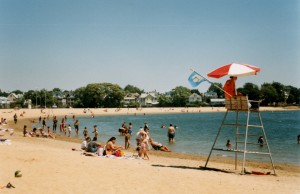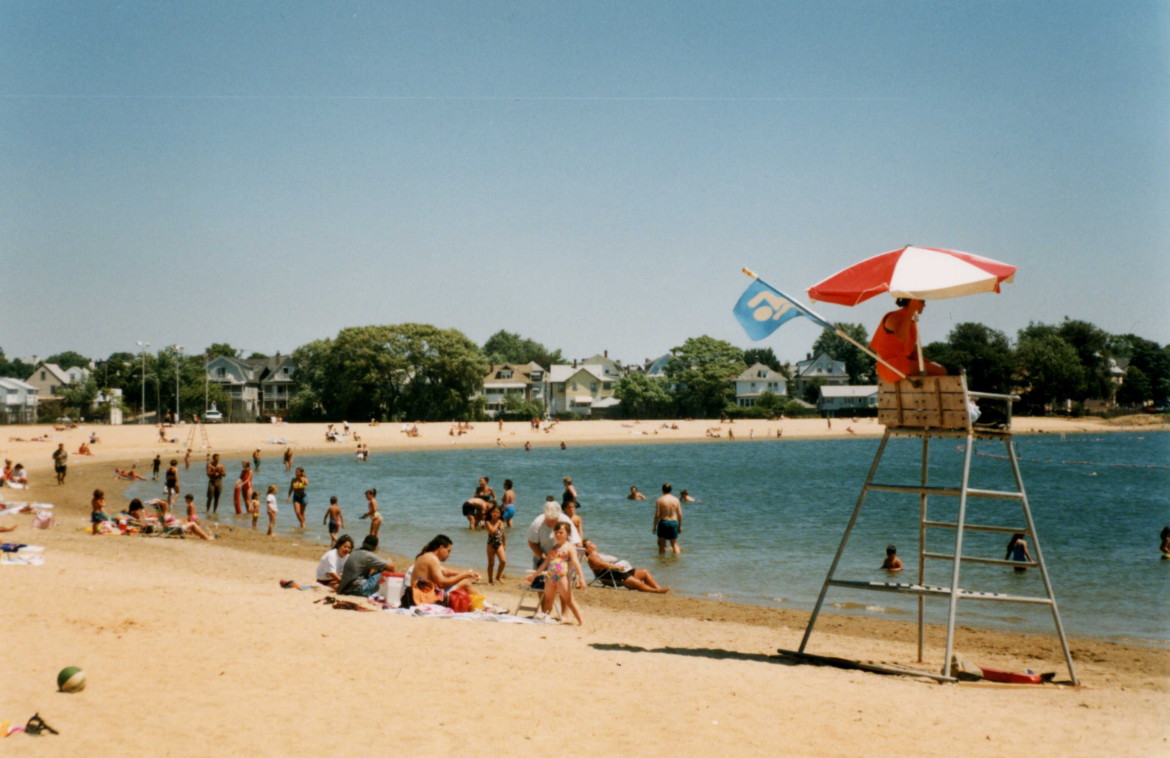 Law enforcement officials are trying to figure out why supposedly massive fights erupted between teens on a crowded Boston beach over Memorial Day weekend.
Law enforcement officials are trying to figure out why supposedly massive fights erupted between teens on a crowded Boston beach over Memorial Day weekend.
Initial reports, from Massachusetts State Police, were that gangs had used Facebook to organize violent gatherings. Then, on Tuesday, Boston’s police commissioner said whatever fights that did break out didn't seem to have anything to do with gangs. And finally state police started backpedalling their gang violence theory.
Regardless, media outlets were all atwitter with the social media, “gang warfare” angle — underscoring how sensational media memes can overwhelm any attempt by the public to understand the dynamics of teen violence.
Reports that gangs had something to do with holiday weekend problems at Carson Beach in South Boston first came Monday night from the state police, who have jurisdiction over the beaches even though city police patrol other parts of the city.
“Police said the gang members are part of a group of more than 1,000 youths who have used social media sites like Facebook to plan unruly gatherings on the beach on three of the past four nights,” the Boston Globe reported.
The state police already were being criticized for the way they’d handled the weekend incidents, in particular that they dispersed crowds that allegedly had nothing to do with the fighting. “The dispersal,” the Globe reported, “caused some tense moments between those not involved with the youths and police, who formed a line to herd the crowd south, down William J. Day Boulevard. Some jostled and argued with officers.”
Pretty soon, it seemed as if every website in New England was blaming gangs and social media for the fighting. And even as the counter-story came out — that there was little or no evidence of gang involvement — the gang angle dominated the Internet.
“Teen gangs descend on Boston,” blared one headline in a national parenting magazine.
In an article headlined “Gang wars break out on Memorial Day,” London’s Daily Mail managed to confuse the number of teenagers allegedly present with the number of combatants: “More than 1,000 youths from rival gangs clashed at Carson Beach, Boston.”
At the same time that those stories were zipping around the world, however, Boston Police Commissioner Edward F. Davis already was questioning gang involvement.
“It looked like there were three or four different fights breaking out with a lot of people running to see what was going on,’’ he told the Globe. ‘‘We’re looking at the gang angle to see if that was the case but at this point in time we’re questioning that.’’
A local public radio reporter took the radical step of actually asking teens who were there what happened.
“No that’s not true, there’s no gangs,” Amanda Murphy, 17, told the reporter, Bianca Vazquez Toness. Murphy’s friend, Samantha Louis added, “‘Cause I guarantee you, if it was some gang stuff, 30 people would have been dead.”
As it turned out, only one person was arrested and apparently the charges had nothing to do with the fighting.
The evolution of the story could be seen pretty clearly on the website of the tabloid Boston Herald. On Tuesday, the Herald reported state police said the fight “was between rival Boston gangs who numbered between 300 and 400.” But on Wednesday, the Herald reported that a police spokesman said “the fight apparently involved only a few gang members.”
And while state police at first said the gangs had organized on Facebook, the same spokesman later said, “there weren't a lot of [social media] precursors to [gangs at Carson Beach]. There wasn't a lot of content that we could pick up that it was about to happen.”
If it turned out to be difficult to find evidence that gangs had organized online to start the trouble at Carson Beach, evidence that gangs had nothing to do with it was hidden in plain view – on Twitter.
“Bro that’s [expletive]. it was no gang fight, I was there RT @SpiffySoles: 1000 teenagers involved in a “Gang Fight” on carson beach,” wrote @LyricalWeez.
“they have carson beach on the news and are saying it was a ‘gang fight’ and people were from ‘rival gangs’ #exaggerated,” wrote @CLAWgod.
Here’s the irony: those Tweets came under an article headlined “Carson Beach Gang Fights spurred by Social Media.”

Can you explain why they closed North Avenue Beach in Chicago…or…what happened in NY o Memorial Day. This was not a one city incident.